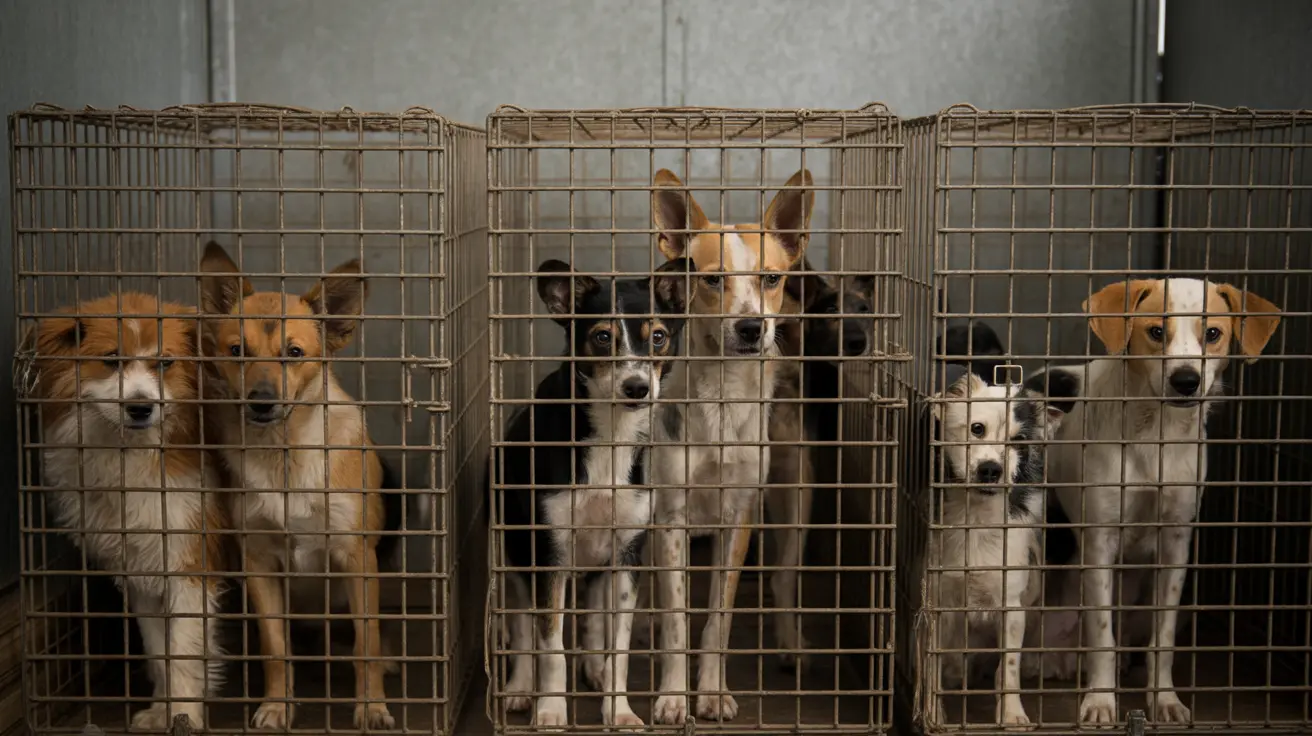Animal Hoarding Definition and Impact on Dogs
Animal hoarding occurs when individuals accumulate more animals than they can properly care for, resulting in neglect and suffering. Unlike responsible pet ownership, hoarding situations typically involve inadequate food, water, shelter, and medical care. The dogs rescued in Volusia County exemplify the severe consequences of this behavior.
In hoarding environments, dogs often compete for limited resources, leading to malnutrition, untreated medical conditions, and psychological trauma. The overcrowded conditions create breeding grounds for parasites and infectious diseases that spread rapidly among the animals.
How to Treat Malnourished Dogs: Medical Recovery Process
The rescued dogs are receiving specialized care tailored to their individual needs. Treating severely malnourished animals requires careful veterinary supervision, as rapid refeeding can be dangerous and potentially fatal.
Feeding Emaciated Dogs Safely
Veterinarians follow strict protocols when feeding emaciated dogs, starting with small, frequent meals of easily digestible foods. The refeeding process must be gradual to avoid refeeding syndrome, a potentially life-threatening condition that can occur when nutrition is restored too quickly to severely malnourished animals.
Addressing Flea Infestations in Dogs
Many of the rescued dogs suffered from severe flea infestations, which can cause anemia and further weaken already compromised animals. Treatment involves immediate flea elimination through veterinary-approved products, followed by environmental treatment to prevent reinfestation.
Treating Skin Infections in Dogs
Skin infections in dogs often develop in hoarding situations due to poor hygiene, flea bites, and weakened immune systems. These infections require antibiotic treatment, medicated baths, and sometimes topical medications to heal properly.
Dog Neglect Recovery and Long-term Care
Recovery for these rescued dogs extends beyond immediate medical treatment. Many will require weeks or months of rehabilitation, including nutritional support, behavioral therapy, and socialization to prepare them for eventual adoption.
Probiotic supplements for dogs may be beneficial during recovery to support digestive health and immune function as their bodies heal from prolonged malnutrition. However, all supplements should only be given under veterinary guidance.
Animal Cruelty Laws Florida and Legal Consequences
Florida maintains strict animal cruelty laws that address hoarding situations. Individuals found guilty of animal neglect or cruelty can face criminal charges, fines, and prohibition from owning animals in the future. These laws exist to protect animals and hold owners accountable for providing proper care.
How to Report Animal Abuse in Your Community
Recognizing and reporting suspected animal neglect is crucial for preventing situations like the Volusia County case. Signs to watch for include multiple animals in poor condition, strong odors, animals without adequate shelter, and visible malnutrition or untreated injuries.
- Contact your local animal control services, humane society, or law enforcement if you suspect animal hoarding or neglect.
- Early intervention can prevent suffering and save lives.
Frequently Asked Questions
- What are the signs of malnourishment in dogs and when should I contact a veterinarian?
- Signs include visible ribs and hip bones, lethargy, dull coat, loose skin, and weakness. Contact a veterinarian immediately if you notice sudden weight loss, loss of appetite lasting more than 24 hours, or any combination of these symptoms.
- How can I help a severely malnourished dog recover and what feeding plan should I follow?
- Never attempt to treat severe malnutrition without veterinary guidance. Veterinarians will create specific feeding plans starting with small, frequent meals and gradually increasing portions. Self-treatment can be dangerous and potentially fatal.
- What is animal hoarding and how does it harm dogs?
- Animal hoarding involves keeping more animals than can be properly cared for, resulting in inadequate food, medical care, and living conditions. It causes malnutrition, disease spread, psychological trauma, and often death among the animals involved.
Moving Forward
The rescue of these 40+ dogs in Volusia County represents both a tragedy and hope. While their suffering highlights the serious consequences of animal hoarding, their rescue demonstrates the dedication of animal control services and veterinary professionals working to save lives.
As pet parents and community members, we can help prevent such situations by staying vigilant, reporting suspected neglect, and supporting local animal welfare organizations. Every dog deserves proper nutrition, medical care, and a loving home.






